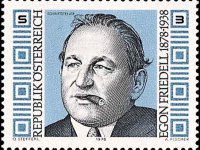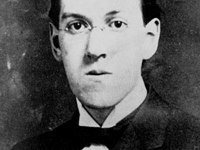
Johann Heinrich Voss (1751-1826)
On February 20, 1751, German poet and translator Johann Heinrich Voss was born. He is probably best known for his translation of Homer‘s Odyssey (1781) and Iliad (1793) into German. He also undertook, with his sons, a translation of Shakespeare which was completed in nine volumes in 1829, but this translation cannot stand a comparison with Schlegel‘s.[1] Being a native German, I know Homer‘s works only in the translation by Voss, and it has inspired me since the days of my childhood.
“Des Jahres letzte Stunde
Ertönt mit ernstem Schlag:
Trinkt, Brüder, in die Runde,
Und wünscht ihm Segen nach.
Zu jenen grauen Jahren
Entfliegt es, welche waren;
Es brachte Freud und Kummer viel,
Und führt’ uns näher an das Ziel.”
– Johann Heinrich Voss, in Empfang des Neujahrs. (1835)
First Poems
Johann Heinrich Voss was born the oldest of five siblings at Sommersdorf in Mecklenburg-Strelitz, Northern Germany, as the son of Johann Heinrich Voss, a farmer, and his wife Katharina Dorothea Karsten, the daughter of an organist. After attending the Gymnasium at Neubrandenburg from 1766–1769, he was obliged to accept a private tutorship in order to earn money to enable him to study at a university. Encouraged by his local pastor, he sent some of his poems to the Göttinger Musenalmanach, a popular German literary annual founded by Heinrich Christian Boie and the poet and dramatist Friedrich Wilhelm Gotter in 1770. The poems raised the attention of Boie and they began to exchange letters.
The Study of Classical and Modern Languages
At the invitation of Boie, Voss went to the University of Göttingen in 1772, where he studied theology (briefly) and philology, his studies encompassing both classical and modern languages, and became one of the leading spirits in the famous Göttinger Hain or Dichterbund, a group of young poets. In 1774 Boie made over to him the editorship of the Musenalmanach, which he continued to issue for several years until 1800. He married Boie’s sister Ernestine in 1777.
Homer’s Odyssey
In 1778 Voss was appointed rector of the school at Otterndorf, Hanover. In 1781, after the publication of several treatises, he produced a German-language text for Homer’s Odyssey using German hexameter verses. This work made the poem national with the Germans. In 24 songs consisting of 12,110 hexameter verses, the Odyssey tells the story of how the king of Ithaca, after the Trojan War, which lasted for ten years, wandered through adverse winds on his journey home, wandered around for another ten years, and finally returned home unrecognized as a beggar after many adventures.
Vergil and Illias
In 1782, Voss accepted the rectorship of the gymnasium at Eutin. There, in 1789, he published translations of Virgil‘s Eclogues and Georgics. In 1793, his translation of Homer’s Iliad appeared, along with the Odyssey in a new form. He also produced two volumes of controversial letters addressed to Christian Gottlob Heine (Mythologische Briefe, 1794). In 1786 he became a court councillor. During his time in Eutin, Voss undertook many journeys and established contacts with Gleim, Goethe, Wieland and Herder. Among others he received Klopstock, Claudius, Jens Baggesen, Wilhelm von Humboldt and Friedrich Heinrich Jacobi as visitors. The years in Eutin became his most productive time.
His most productive Time
Voss published his collected poems in 1802. As a lyricist he wrote mainly songs, odes, elegies, and pastoral idylls in the style of the ancients and of the German Neoclassical poet Friedrich Klopstock. [4] Voss’s idyll Luise (1795), which portrays with naturalistic ease the life of a country pastor’s family, inspired Goethe to write Hermann und Dorothea.[1] His poems were often set by contemporary composers such as C.P.E. Bach, Johann Friedrich Reichardt, and Johann Abraham Peter Schulz, and also later composers such as Felix Mendelssohn,[5] Carl Maria von Weber, and Johannes Brahms. Many of his poems and settings of them were published in the Musenalmanach.

Homer’s Odyssea, translated by Heinrich Voss, Cover of the First Edition
Retirement
He retired from Eutin due to the ungenial work in 1802 with a pension of 600 thalers, and settled at Jena as a private scholar. In 1805, although Johann Wolfgang von Goethe used his utmost endeavours to persuade him to stay, Voss accepted a call to a professorship of classical literature at the University of Heidelberg. Here, in the enjoyment of a considerable salary, he devoted himself entirely to his literary labors, translations and antiquarian research. An ardent rationalist, he waged an embittered struggle against the younger Romantics and became increasingly lonely before his death in 1826.
Further Works
Voss was regarded by Goethe and other German poets as an authority on Classical metres, but his pedantic regard for the niceties of form and language made his later translations seem strained.[2] It is, however, as a translator that Voss chiefly owes his place in German literature. His translations indicate not only sound scholarship but a thorough mastery of the laws of German diction and rhythm. The most famous of his translations are those of Homer. The translation of the Odyssey, as originally issued in 1781, is singled out as the most successful. He also translated Hesiod (1806), Theocritus, Bion and Moschus (1808), the whole of Virgil (1799, rev. ed. 1821), Horace (1806), Albius Tibullus (1810), Propertius (1830) and selections from Ovid (1798). He prepared a critical edition of Tibullus. From 1818 to 1829, a translation of William Shakespeare‘s plays in 9 volumes was published.[5] This work Voss completed with the help of his sons Heinrich and Abraham, both of whom were scholars and writers of considerable ability, though the result has been characterized as less successful than Schlegel’s work.
Legacy
In 1808 he was accepted as a foreign member of the Bavarian Academy of Sciences and in 1814 of the Prussian Academy of Sciences. Johann Heinrich Voss died in 1826 and was buried at the St. Anna cemetery in Heidelberg. Voss was a man of remarkable intellectual independence and powerful language. First and foremost it is the translations of Homer’s great epics to which he owes his place in German literature. His translations show not only profound erudition and knowledge of the ancient languages and art, but also a perfect command of the German language. The most famous of his translations are those of the Homeric epics Iliad and Odyssey. Most famous became his translation of the Odyssey, which appeared in 1781 “at the expense of the author” and whose memorable, pictorial language familiarized generations of German readers with Homer. In 1793 the whole of Homer, the Iliad and the Odyssey appeared in revised form.
Phoebe C. Seagull, Homer and the Epics, [13]
References and Further Reading:
- [1] August Wilhelm Schlegel and his Shakespeare Translations, SciHi Blog, September 8, 2014.
- [2] Johann Heinrich Voss, German Poet, at Britannica Online
- [3] Works by or about Johann Heinrich Voss at Internet Archive
- [4] Felix Mendelssohn – Child Prodigy of the Romantic Era, SciHi Blog, November 4, 2012.
- [5] Brush Up Your Shakespeare, SciHi Blog, April 26, 2013.
- [6] Johann Heinrich Voss at Wikidata
- [7] Johann Heinrich Voss at Reasonator
- [8] Works and Translations of Johann Heinrich Voss at Wikisource (in German)
- [9] Chisholm, Hugh, ed. (1911). . Encyclopædia Britannica (11th ed.). Cambridge University Press.
- [10] Gilman, D. C.; Peck, H. T.; Colby, F. M., eds. (1905). . New International Encyclopedia (1st ed.). New York: Dodd, Mead.
- [11] Werke von und über Johann Heinrich Voß in der Deutschen Digitalen Bibliothek
- [12] Franz Muncker: Voß, Johann Heinrich. In: Allgemeine Deutsche Biographie (ADB). Band 40, Duncker & Humblot, Leipzig 1896, S. 334–349.
- [13] Phoebe C. Seagull, Homer and the Epics, Museum of Fine Arts, Boston @ youtube
- [14] Timeline of Translators of William Shakespeare, via DBpedia and Wikidata





